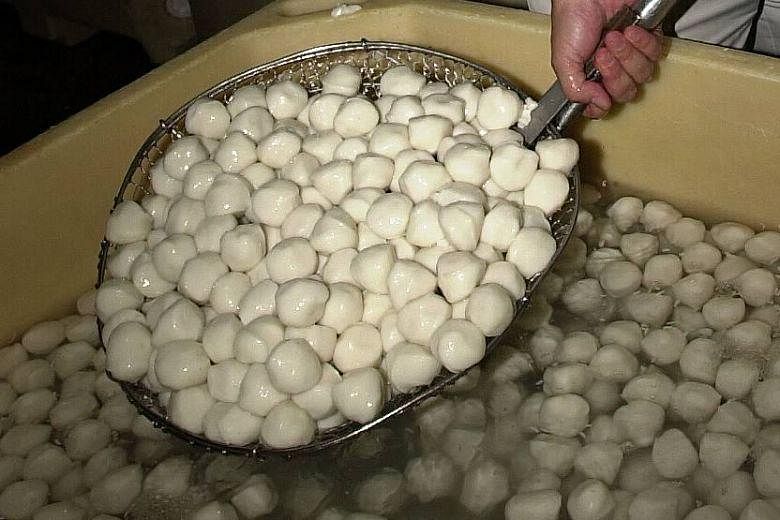Some food manufacturers here might not be entirely honest with their product labelling, researchers who conducted DNA testing on fresh and frozen seafood samples taken from supermarkets have discovered.
In one instance, what was sold as premium fish meat turned out to be of cheaper origin.
The team of scientists from the National University of Singapore (NUS) also found, among other mislabelled food items, the DNA of pigs present in five samples of food sold as cuttlefish balls and prawn balls.
The Sunday Times understands that the samples were bought at different times from different supermarkets across the island. They were also sold by the same Singaporean company.
In response to queries, the Singapore Food Agency (SFA) said the presence of porcine DNA in these non-halal products could be due to the manufacturing process.
Said SFA: "For example, a food manufacturing plant may produce a wide range of products, including seafood and pork products. As such, trace levels of porcine DNA may be introduced into the seafood products. This, however, is not a food safety issue."
Professor Rudolf Meier, the principal investigator of the study, said that the porcine DNA could be present in the food samples if pork and squid meat are ground in the same mincer.
He noted that the food samples found to contain pigs' DNA were not labelled halal or kosher.
The NUS team tested 105 food samples - 84 from six supermarkets and 21 from two seafood restaurants - across the island in the first week of May last year.
They discovered 12 of these samples contained DNA of animal species not indicated on the food labels and/or ingredient lists.
All the samples classified as mislabelled were bought at the supermarkets.
There were cases of food sold at a premium that turned out to be cheaper food. These included the more expensive prawn roe, wild-caught Atlantic salmon and halibut, that turned out to be the cheaper fish roe, farmed Pacific salmon and arrowtooth flounder respectively. A product that was labelled crab leg without any ingredient list was found to contain only the DNA of fish.
SFA said: "The Singapore Food Regulations stipulate that all pre-packed food for sale in Singapore must be labelled with the name of food, ingredients, net content and source. It is the responsibility of the industry to ensure that any food labelling claim made is accurate and can be substantiated.
"SFA investigates feedback on authenticity of food products. Attempting to pass off one species as another species is an offence under the Sale of Food Act, and the offender is liable to a maximum fine of $5,000."


